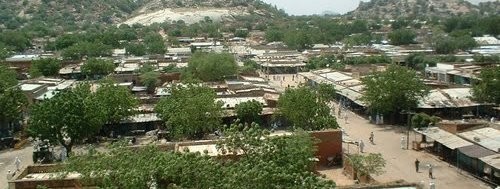The Sudanese state of South Kordofan has welcomed about 13,000 South Sudanese into government-controlled areas, in spite of the fact that the state is undergoing its own conflict.
In a fact sheet dated 19 May, OCHA-Sudan, the UN coordination agency based in Khartoum, reported that 13,713 people came to Abu Jubeiha and El Leri in the state since January 2014.
The agency said that another 3,661 South Sudanese fled into Blue Nile, according to data compiled by the Sudanese government, local and international organizations.
OCHA called the flight of the South Sudanese into South Kordofan ‘remarkable’ given that in previous years South Sudan was the preferred refuge for many from South Kordofan. The agency noted this was a sign of the intensity of the conflict in South Sudan.
However, in some SPLM-N-controlled areas of South Kordofan and Blue Nile the situation has worsened considerably over the last two or three months owing to government offensives.
Many people have fled from frontline areas deeper into SPLM-N territory, causing fresh displacement on top of the already 800,000 people affected by conflict since 2011.
“The overall estimated number of newly displaced people is about 116,000, according to aid agencies and the SPLM-N,” reads the fact sheet.
“SPLM-N has reported that in total an estimated 90,000 people were displaced in South Kordofan alone over the past month,” it adds.
Famine Early Warning Systems Network (FEWS NET), a watchdog organization funded by USAID, reported in its April update that SPLM-N-controlled areas of South Kordofan are the most acutely food insecure in Sudan.
The organization expects emergency (IPC Phase 4) levels of food insecurity in the SPLM-N-controlled areas of South Kordofan from June 2014.
FEWS NET reports that about a third of displaced and poor host community families in the SPLM-N-controlled areas of South Kordofan are likely to experience extreme loss of assets due to very high cereal prices and deteriorating terms of trade.
Significant food consumption deficits are expected to contribute to increased prevalence of malnutrition in these areas, FEWS NET reported.




